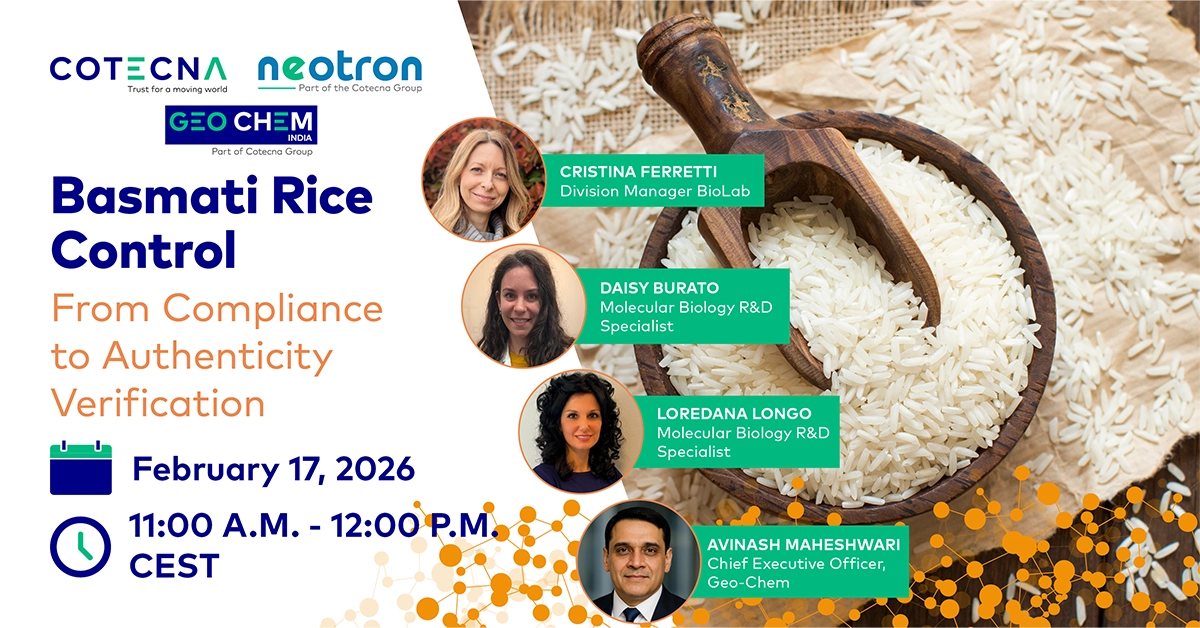Tags
TDAP holds seminar on MRL, aflatoxin management in rice to strengthen export compliance
NEWS WIRE
GUJRANWALA – The Trade Development Authority of Pakistan (TDAP) organised a seminar on the “Management of Maximum Residue Limits (MRL) and Aflatoxin in Rice” at the Gujranwala Chamber of Commerce and Industry Monday.
This event, part of TDAP’s ongoing campaign to elevate rice quality standards and expand export potential, brought together local rice growers, farmers, provincial agriculture extension officials, and experts from key research bodies. The seminar emphasized actionable measures to curb MRL exceedances and aflatoxin contamination, ensuring Pakistani rice meets stringent global regulations and sustains its competitive edge in international markets.
Pakistan, a leading global rice exporter, faces ongoing challenges in maintaining food safety compliance, particularly with the European Union (EU). Dr Mubarik Ahmed, Consultant (Agro) at TDAP, presented on core strategies for MRL and aflatoxin control, stressing the importance of pre-harvest practices like timely pesticide application and post-harvest techniques such as rapid drying to under 14% moisture and storage in aerated environments to inhibit Aspergillus fungi growth. He highlighted that in 2025 alone, the EU issued 35 notifications for Pakistani rice, with 18 related to pesticide residues and 15 to aflatoxins, underscoring the risk of market restrictions and financial setbacks if unaddressed.
Choudhry Siddiq, President of the Gujranwala Chamber of Commerce and Industry, served as the chief guest and delivered an inspiring address, urging stakeholders to prioritize sustainable farming for long-term economic benefits. The seminar also featured prominent representatives from the Rice Exporters Association of Pakistan (REAP), including Chairman REAP Faisal Jehangir, Senior Vice Chairman REAP Javed Jilani, and Chairman South Rahim Janno. They actively encouraged farmers to minimize MRL and aflatoxin levels through integrated pest management, adherence to approved pesticides, and vigilant monitoring, emphasizing that such practices would not only reduce export rejections but also enhance profitability and global trust in Pakistani basmati.
Dr Shakeel Ahmad, Director of Agriculture (Extension), Gujranwala Division, spoke on “Nutrition Management and Government Initiatives,” advocating for balanced nutrient application to bolster crop resilience against pests and toxins. Dr. Abdullah Niaz, Principal Scientist at the Pesticide Reference Lab, Kala Shah Kaku, addressed “Pesticide Residue Issues and Way Forward,” recommending strict observance of Pre-Harvest Intervals (PHI) for insecticides (typically 7-28 days) and avoiding banned substances like acetamiprid and chlorpyrifos. REAP representatives delved into “Export Challenges,” sharing insights on navigating international standards amid supply chain pressures.
Dr Muhammad Ijaz, Principal Scientist from the Rice Research Institute, Kala Shah Kaku, presented on “Rice Production Technology,” promoting high-yielding, resistant varieties and seed treatments to mitigate contamination risks. Rao Muhammad Ashfaque, Deputy Director of the Department of Plant Protection, outlined “Procedural Requirements to Comply with MRL and Aflatoxin in Rice,” aligning with International Plant Protection Convention (IPPC) guidelines and WTO Sanitary and Phytosanitary (SPS) agreements.
Athar Hussain Khokhar, Director General (Agro) at TDAP, in his welcome remarks, reinforced the need for collective action to preserve Pakistan’s dominant position in EU basmati imports, which has faced erosion from rivals due to compliance gaps. He announced TDAP’s upcoming rice promotion roadshows in the EU and Middle East to showcase premium Pakistani varieties and foster new trade linkages.
Moderated by Amir-ur-Rehman, Deputy Manager (Agro and Food Division, TDAP), the seminar concluded with interactive discussions, equipping attendees with practical tools for compliance. TDAP remains committed to this seminar series in Punjab’s rice hubs, with recent events in Bahawalnagar and Multan, and forthcoming sessions in Sheikhupura (September 30) and Sialkot (October 1). Through these efforts, TDAP aims to empower the rice value chain, drive export growth, and safeguard farmer livelihoods against evolving global demands.
https://www.nation.com.pk/30-Sep-2025/tdap-holds-seminar-mrl-aflatoxin-management-rice-strengthen-export-compliancePublished Date: September 30, 2025







